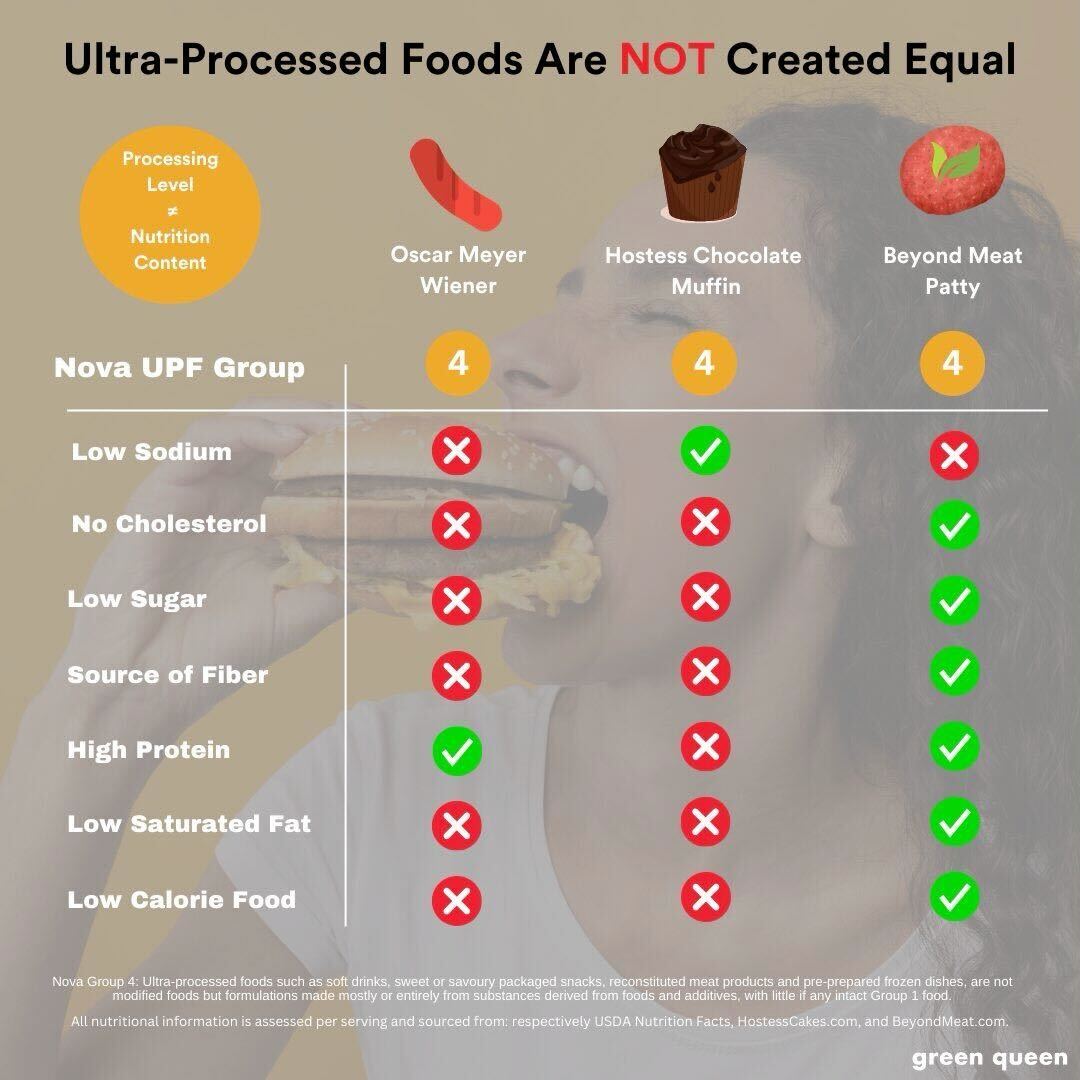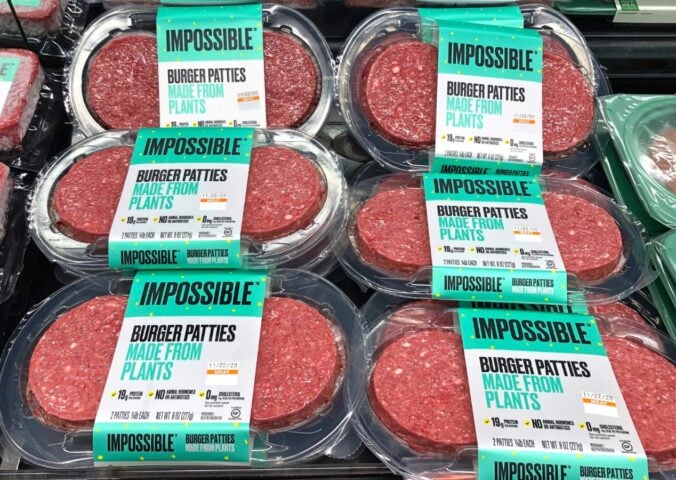A new guide provides answers to many commonly asked questions about ultra-processed foods (UPFs).
Created by Alice Johnson, a PhD scientist, Marlana Malerich a food systems consultant, and Sonalie Figueiras, a journalist and editor of Green Queen Media, the guide considers what UPFs are, whether consumers should be worried about them, and why the media is obsessed with the label.
The informative Q&A-style tool seeks to clarify some of the confusion around UPFs. It also aims to help consumers make healthier food choices. For the authors, “the ultimate goal of this guide is to provide context and nuance to the conversation.”
What are UPFs?
The term “ultra processed” has become commonplace in recent years. At the same, it is also increasingly causing confusion. Often used as a synonym for “unhealthy,” the term lacks a clear nutritional definition. This has led to some in the meat industry to weaponize the label in order to confuse people about the health benefits of plant-based food.
The concept of UPFs comes from a system called “Nova.” The new guide explains that a Brazilian team led by Dr Carlos Monteiro created Nova in 2005. They defined UPFs as “cheap industrial sources of dietary energy and nutrients plus additives, using a series of processes.”
In short, the term’s origin refers to a food item’s level of processing, rather than its nutritional value. The concept, coined before the rise of plant-based meats, does not therefore assess impacts on health. As such, it lacks the ability to say whether or not a food (or food type) can be part of a healthy diet.
Are plant-based meats ultra processed?
As the Green Queen guide explains, one study from 2023 found that around 40 percent of chosen plant-based products could be called “ultra processed” using the Nova system.
However, not all UPFs are equal. Unlike processed meat, which has been shown to cause cancer, plant-based meats generally have a more positive nutritional profile. Indeed, a major study of 266,666 people suggested that plant-based meats are not linked to a greater risk of cancer, heart disease, and type 2 diabetes.

The meat industry has tried to slow down the growing movement towards healthier and more sustainable plant-based food using the “ultra-processed” label, along with other misinformation.
“Plant-based meats are a broad category with many differences in terms of nutrition and ingredients used,” the guide points out. As such, judging them as a whole can result in “misleading and inaccurate conclusions.”
A recent paper by food systems researcher Jenny Chapman agrees. In it, she urged nutrition scientists to stop using the term “ultra processed” when describing plant-based meat alternatives.
The Beyond Burger case
A common scapegoat of the UPF generalization is Beyond Meat. Using the example of Beyond, meat industry figures have gleefully spread the myth that plant-based food is “unnatural” and lacking nutritional value.
In fact, even the demonized Beyond Burger can be a good choice as a swap for meat. With 35 percent less total fat, 35 percent less saturated fat, and fewer calories than a beef burger, Beyond Burger is a healthier way to enjoy some unhealthy food.
A single Beyond Burger also contains 20 grams of protein, which is similar to a meat patty – or around 40 percent of an average person’s daily protein needs.
Crucially, as the company itself states, processed plant-based meats should not come at the expense of whole foods. “We don’t suggest our plant-based proteins are swaps for whole fruits and vegetables,” writes Beyond.
The Green Queen guide also discusses Quorn, which is low in fat, high in fiber and has equal protein bioavailability and zinc to meat.
What are the guide’s key takeaways?
As well as adding nuance to a confusing area of nutrition, the guide has several takeaway messages.
First, the classification system for UPFs is not based on nutritional values. When this system was devised, moreover, most plant-based meat alternatives did not exist.
Second, understanding what goes into food is not as simple as three little letters. For example, animal products are not required by law to reveal processing steps involved in meat production.
Third, not all vegan meats are the same. In any case, research has repeatedly shown that the healthiest diet is whole food plant based, including vegetables, nuts, seeds, beans, legumes and fruits.
“The diverse nutritional profiles of the whole product challenge a simplistic categorization of foods as UPF,” the guide concludes.
You can read the full guide here: The Complete Ultra-Processed Foods and Plant-Based Meat FAQ Guide: Everything You Need To Know





